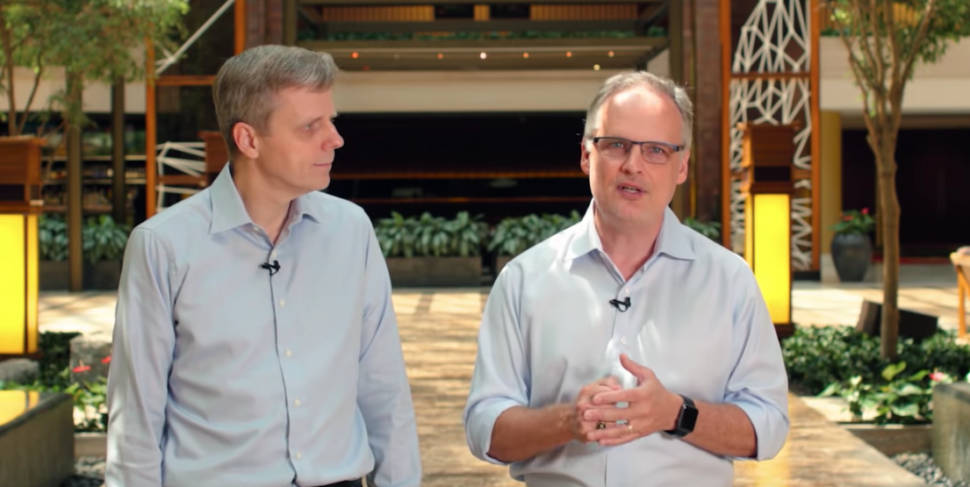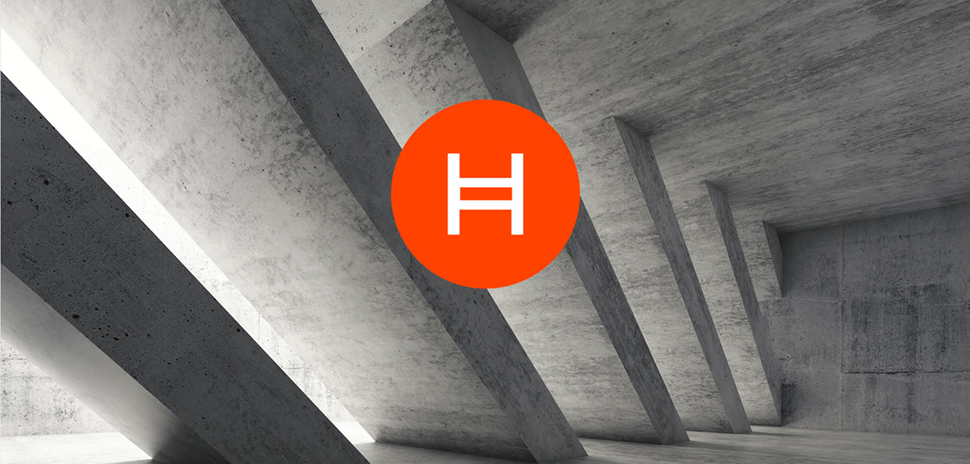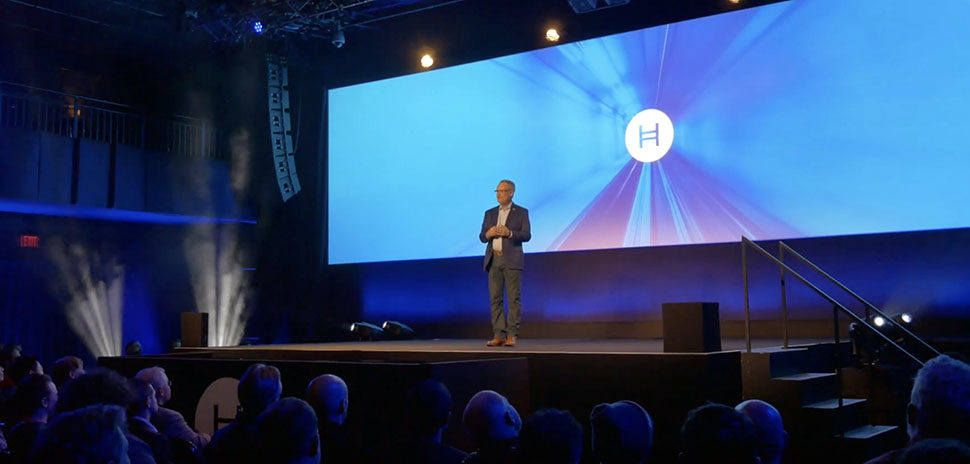A new distributed ledger developed in Dallas could make the blockchain obsolete while changing how people surf the web, interact with the Internet of Things, and conduct other business.
Hedera Hashgraph bills itself as the faster, more secure, and stable alternative to blockchain. The platform is capable of processing 100,000 transactions per second using a decentralized public ledger.
Hedera Hashgraph announced today that it has raised $100 million from institutional investors and individuals as the Dallas-based company enters hyper-growth mode. That raise includes $10 million from Hedera Hashgraph’s own employees.
‘THE FASTEST AND MOST SECURE PUBLIC LEDGER AVAILABLE’

Mance Harmon, co-founder and CEO of Hedera
“We are seeing tremendous demand for our fast, fair, and secure public network,” said Mance Harmon, co-founder and CEO of Hedera. “With this funding, we’ll be able to accelerate development of key services to be provided by Hedera — including cryptocurrency, file storage service, and smart contract platforms — to help make it not only what we believe is the fastest and most secure public ledger available, but also the most feature-rich for developers looking to build highly distributed apps.”
“We will be one of the top three platforms globally in the near future.”
Mance Harmon
Harmon founded the company along with fellow U.S. Air Force veteran Leemon Baird.
The company boasts a valuation of $6 billion based on the value of competing cryptocurrency platforms, Harmon said.
The platform is expected to launch in September with early access for certain partners. Many applications have already been built for it.
Bryan Chambers, director of the University of Texas at Dallas’ Blackstone Launchpad, told Dallas Innovates at the SVB Crypto-Currency Panel Luncheon Wednesday at the Capital Factory that Hedera’s announcement is important news.
“It’s a really big deal for the nation — and it just happens to be in Dallas,” he said.
Panelists at the luncheon agreed that the Hedera platform could have a $6 billion valuation.
NO MINING NECESSARY
Where blockchain is a chain of transactions, Hedera Hashgraph looks more like an interwoven vine — hence the name Hedera, an old term for a vine. It’s got greater speed, security, governance, and stability. And unlike blockchain, there’s no mining necessary, saving computing effort and electricity. That could give Hedera Hashgraph the edge over Ethereum and other blockchain platforms.

Leemon Baird, Hedera co-founder
“It’s a really big deal for the nation — and it just happens to be in Dallas.”
Bryan Chambers
“We view this as the technology that takes this mainstream because there’s so much you can do,” Harmon said. “We will be one of the top three platforms globally in the near future.”
The company has about 50 employees and continues to hire at a rapid rate around the world.
The technology has already been patented, and the company is seeking global patents, Harmon said.
Multiple enterprises, such as banks, insurance companies, and other agencies, will form the Hedera Hashgraph Council to govern over the decentralized platform.
HOW YOU WOULD USE IT
Paywall subscriptions, toll tag accounts, electric vehicle charging stations, and parking meters are just a few of the various accounts North Texans juggle in their everyday lives.
With Hedera Hashgraph, people could pay as they go from one single cryptocurrency wallet — even if the transaction is less than a penny.
Harmon envisions a world where articles or videos can be consumed through one-time microtransactions rather than having to get a subscription to get through the paywall.

Hedera founders Leemon Baird and Mance Harmon. [Screenshot via Hedera Hashgraph News video]
He likens it to when Apple opened its online music store, allowing consumers to just buy one song at a time, not the whole album.
“We’re doing the same thing,” Harmon said. “You can change your business model to browse and pay micropayments for the pages that you read.”
That way, people won’t need a whole year’s subscription to multiple websites or services. For news sites or Wikipedia, this provides an ongoing revenue stream, Harmon said.
This also could disrupt what Harmon calls the surveillance capitalism, the business model used by social media sites like Facebook and Twitter that sell personal information to advertisers. Currently, the people who use social media aren’t customers, they are products being packaged and marketed.
With Hedera Hashgraph, customers could pay microtransactions to use social media services, fractions of a penny each time. That makes the users the customers and puts them in control. “I can pay for services that I want to use on one of these platforms,” Harmon said.
MERGING CRYPTOCURRENCY AND IOT DEVICES COULD CHANGE HOW PEOPLE DRIVE
An IoT device could interact with the vehicles and negotiate a fair price for parking time, location, and even power for electric vehicles before the car arrives. The same goes for toll roads.
The technology will be open review so any developer can build an application for using the hashgraph public ledger.
“I believe that the Internet of Things will never reach its full potential without access to global cryptocurrency that supports micropayments,” he said.
The cost per transaction will be minimal because there are no mining costs. Node operators will get compensated.
The platform could also be used for supply chain management, making it possible for consumers to see where their food came from, for example.
The technology will be open review so any developer can build an application for using the hashgraph public ledger.
UPCOMING EVENTS
Starting today, Hedera Hashgraph will launch a short accredited investor crowdsale that’s expected to raise $20 million. The crowdsale goes from Aug. 1 through Aug. 14 or until the company reaches its goal, whichever comes first.
Visit the company’s website for more details.
Hedera Hashgraph will host a developer conference called Hedera18 on Oct. 15-17 at the Hilton Anatole Hotel in Dallas. It’s expected to draw 1,500 developers, architects, and industry experts to the city. True to the company’s cryptocurrency nature, attendees could earn tokens by participating.
That event will coincide with a global hackathon in Dallas, Tel Aviv, London, Singapore, and Sao Paulo. This will be a chance for developers to build new platforms for gaming, social causes, and micro-payments using Hashgraph technology.
Regional winners will have a chance to compete with teams all over the world. They also will earn tokens and a shot at having the project incubated and deployed on Hedera Hashgraph’s public network.
![]()































